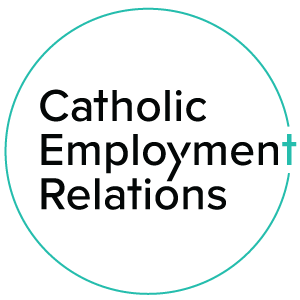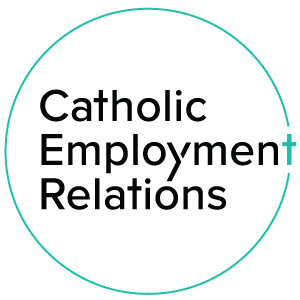Crown Employees Salaries and Conditions Award 2022
CER is delighted to provide this short summary of the outcome of the application for Crown Employees (Teachers in Schools and Related Employees) Salaries and Conditions Award 2022.
On November 11, The Industrial Relations Commission NSW (NSW IRC) published its decision on the Application for the Crown Employees (Teachers in Schools and Related Employees) Salaries and Conditions Award 2022. In summary:
The Award has a two year term, expiring 31 December 2023
The Award provides an increase in remuneration of .25% backdated to the first full period after 1 July 2022
The annual increase in remuneration for 2023 will be 3%, comprising a 2.53% increase in salaries and salary related allowances and a 0.5% increase to the superannuation guarantee
There is an additional one-off payment outside the Award. The lump sum is 0.25% of the actual earnings in the period 1 January to 30 June 2022.
The payment will be made on 22 December 2022
The no extra claims clause in the Award will be amended to substantively reflect the language used in the Crown Employees (School Administrative and Support Staff) Award 2022
Overall agreement
The NSW Teachers Federation has made it clear that the settlement is unsatisfactory, and it will continue campaigning for higher increases. They may continue to take industrial action, particularly in the lead up to the state election. The NSWTF has achieved some media cut-through with headlines stating that teachers received a pay cut in real terms. The Federation and other Unions, anticipate a change of state government on 25 March next year. The NSWTF are likely to continue a strong campaign that achieves their goals of undermining the current Government and placing pressure on the Labor party to do better for teachers.
These factors mean that matching the DoE offer is unlikely to secure an agreement with the IEU. At best, it might result in an agreement to the end of 2023. The reality of a short term agreement is the need to prepare for negotiations almost immediately. It is also likely that employers will make significant concessions, and will gain little respite in return. Across our education client base we expect negotiations to be protracted. The reality is that in industries where pay is strongly correlated with the public sector, unions are unlikely to accept any other than the most generous of offers ahead of the election. Should Labor emerge victorious we will need to wait until their education agenda is made clear. There is also the possibility that rather than award pay increases, the Labor government may facilitate the NSWTF running a work value case in the NSW Industrial Relations Commission. This could mean final outcomes on pay are not known until the end of next year.
We expect the IEU to continue its joint campaign with the Teachers Federation. They will continue to pressure all Catholic employers to do better than the state government. In the case of employers with multi-enterprise agreements, the Secure Jobs, Better Pay legislation, may pose an additional risk to employers. Employers on multi-enterprise agreements may be open to staff taking protected industrial action. All employers may be impacted by the introduction of intractable bargaining orders.
To explain how the application came about and how the decision was reached, let us provide you with a background history of the situation, the terms of the Award and the overall impact.
-
On 12 October 2021, the Secretary of the Department of Education (Secretary) notified the Registrar of an industrial dispute under S130 of the Industrial Relations Act 1996. The notice asked the NSW IRC to assist the Department of Education (DoE) and the NSW Teachers Federation (NSWTF) in negotiations for a new Award to replace the Crown Employees (Teachers in Schools and Related Employees) Salaries and Conditions Award 2020.
The DoE varied the application several times. The final version applied for a new Award that would:
• Preserve the conditions of the previous Award
• Would provide increases of:
• 2.03% paid 1 January 2022 plus 0.25% effective 1 July 2022
• 3.0% 2023 inclusive of the legislated superannuation increase
• 3.0% 2024 inclusive of the legislated superannuation increase
• Changes to the Performance and Development (PDP) processes for Teachers (Clause 7) to allow the Secretary to vary the jointly developed framework after consultation
• Changes to reflect the amendments to the annual PDP required for progression
• Plain language amendments agreed by all parties
Some issues were resolved at arbitration, but the NSW IRC was left to determine the following:
• whether to create a new Award or vary the existing one,
• the term of the Award,
• the changes to Clause 7, and
• the terms of the “no extra claims” clause to be included.
The determination states that it was common ground that salary increases and salary-related allowances anticipated by the proposed Award exceeded those that the Commission could award without the Secretary’s agreement. This is because the Industrial Relations Act of 1996 and the Industrial Relations (Public Sector Conditions of Employment) Regulation 2014 prevent the NSW IRC from awarding sums above the NSW Government Wages Policy. While there was no opposition to the salary award from the Unions, it did inform their broad position during proceedings.
-
While there was no opposition to the salary award, remuneration-based arguments were made and were a critical factor in determining the term of the Award.
The NSWTF argued that a new award would preclude it from continuing to make claims on behalf of its members. The NSWTF said it will “continue to press its claim for greater salary increases than those contained in the application.”
To provide the context in which those claims are made, the NSWTF:
• Said the Secretary had “detracted from the paid rates nature” of the 2020 Award and encouraged over award increases.
• They cited a proposal to confer the additional 0.25% increase from 1 July by way of administrative action rather than adjusting award rates.
• They also referred to the 11 August media release proposing higher paid roles for outstanding teachers.
• They submitted that constraints on public salaries in 2023 and 2024 might be different, and the Government’s position might change during that time.
The NSW IRC said that as the NSWTF’s call for a variation “is premised on its stated intention to continue to press its claims, we do not accept it.” They said they considered it contrary to the Commission’s functions to adopt an approach that might encourage further disputation.
-
DoE
• The Secretary requested a three-year term ending 31 December 2024.
• She said it was appropriate “to provide certainty and stability for the Department and its employees” and would allow them to “concentrate on addressing various other challenges confronting the education sector.”
• She noted that a shorter term would mean the parties re-entering negotiations almost immediately.
• She cautioned against speculation about changes to the rules and regulations and said that proposing the maximum pay rise permitted under current rules was reasonable.
NSWTF
• The NSWTF submitted with inflation rising, it would be premature to consider increases for 2024.
• They argued that wage fixing principles permit salary increases that maintain the real value of salaries to be awarded.
• They said with the anticipated rises in inflation, a special case could be justified for much greater salary increases.
• They also recognised this could only happen with the agreement of the Secretary, which has not occurred.
IEU
• Maintained the position that at least a 10 to 15% increase in salaries for teachers over two years is needed.
• Anything less would be unsatisfactory having regard to current rates of inflation and would equate to a cut in real earnings
• The rise is needed to ameliorate the current teacher shortage
• The Secretary’s application would lock in significant reductions in the real value of wages
The NSW IRC determined that:
• The term of the Award should be two years
No Extra Claims Provision
This was discussed as the NSWTF wanted to ensure the wording of the Clause did not prevent them from making claims for the next Award before the expiry of the new Award.
Pay
Finally, CER notes from the NSW DoE media release that a one-off lump sum is being paid outside the Award. The DoE will pay a sum equivalent to 0.25% of the teacher’s actual earnings for the period 1 January 2022 to 30 June 2022. Essentially six months back pay but the change in pay rate will not be reflected in the Award.. The 0.25% increase backdated to 1 July 2022 will be reflected in the Award rates. These two figures combined to give rise to the headline that teachers will receive a 3% increase in both 2022 and 2023.
Should you need any support, advice or help understanding the implications of this decision on your organisation, please contact our Industrial Relations business unit.

